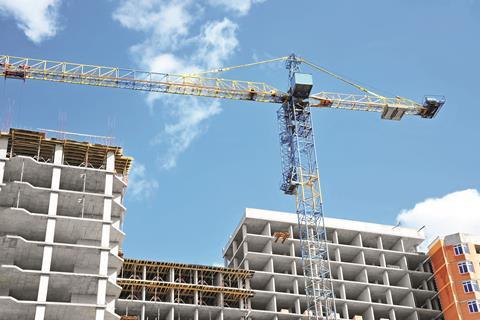When considering technologies in the real estate space, most people think about advancements that tech can bring to property management, valuations, sales, lettings and many more functions in the asset management lifecycle.

A part of the value chain that not many industry players consider, but where technology could really make the difference, is construction.
The construction industry is huge; it is forecast to exceed $24trn (£18.4trn) by 2021. It is also inefficient and technologically underserved. A BPF report published late last year highlights that while more than 50% of proptech applications seek to solve sales and leasing issues, only 16% focus on construction.
The McKinsey Global Institute estimates that construction has experienced 1% annual productivity growth over the past two decades, compared with 3.6% for manufacturing, and says that if it were to catch up with the global economy this would bring a productivity boost of 60%, increasing the world’s GDP by 2%. It is also worth noting that 98% of large projects suffer average cost overruns of 80% and 20-month delays and that the mean construction waste on a project is 35%.
All this points to a sec tor in need of change and construction tech (contech) is increasingly starting to be noticed, in part thanks to big deals last year such as Autodesk’s $875m purchase of PlanGrid and Trimble’s purchase of Viewpoint for $1.2bn, as well as mammoth funding rounds by Katerra and View.

Modern methods of construction (MMC) refers to a broad range of innovative techniques that can substitute or transform the way we build. These are classed in seven categories, from 3D structural systems at the pre-manufacturing stage all the way to automation-led reduction in site labour, coupled with productivity and assurance improvements. The goal is to industrialise construction by optimising all seven.
At present, the greatest gains seen through use of technology are in the management of construction processes. This ranges from AI software for workflow management through to the deployment of sensors and drones for machine-learning-driven job site analysis, the data from which can then be used for error minimisation and process management.
The data extracted from these analyses is priceless – imagine the gains to be had just from eliminating the construction delays and wastage referred to above.
What is stopping contech from really exploding is a lack of resources. The construction industry spends less than 1% of its revenue on R&D – the second-lowest level per sector after agriculture – and there is a misalignment of incentives between owners and contractors, whereby construction firms are deterred from taking risks.
So the first step for contech to take hold will be for this adversarial relationship to change, for owners to realise the value of tech and financially incentivise contractors to embrace it.
Angelica Donati is chief executive of Donati Immobiliare





























1 Readers' comment